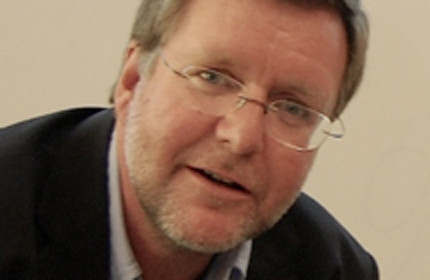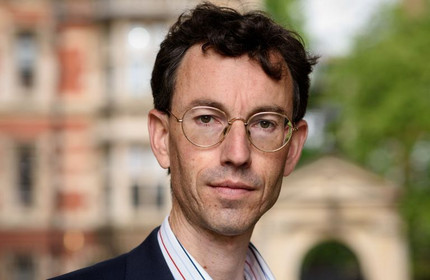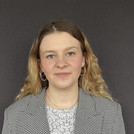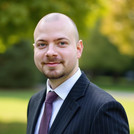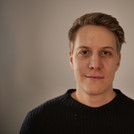War and Conflict Studies | Master
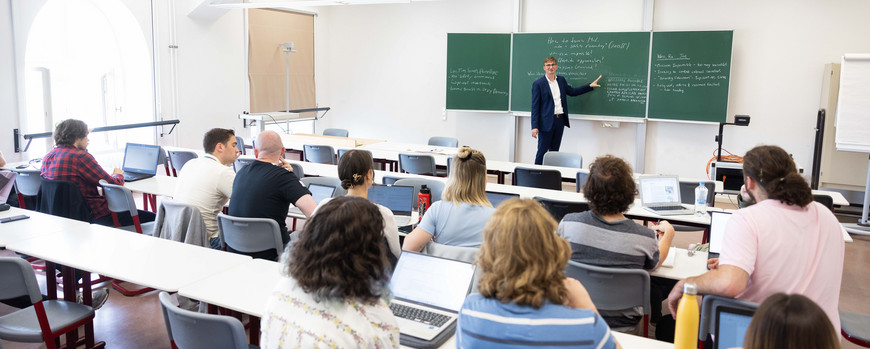
The history of humankind is also the history of armed conflict. The 'Age of Extremes' in particular saw scenes of violence of a completely new order of magnitude, the effects of which still extend into the present day. Political science, the social sciences and history are entrusted with the task of recognizing the causes and patterns of these wars and conflicts, contextualizing them, and making the insights thus gained productive for resolving current problems. This programme caters to German applicants and those applicants from around the world that speak German on the level of a native speaker (C1). International applicants without this level of German can apply for our MA in International War Studies.
| Name | War and Conflict Studies |
| Degree | Master of Arts |
| Standard period of study | 4 semesters |
| Credit points | 120 |
| Language of instruction | German & English |
| Start of program (1st semester) | Winter Semester |
| Campus | Am Neuen Palais |
| Fees & Charges | Semester fees and charges: yes Tuition fees: no |
Program Content
Professor of History and Global Affairs, Yale University„There is no better programme in the world to understand Germany's complex role in past and present conflicts.“
The interdisciplinary War and Conflict Studies degree program analyzes the causes, dynamics and contexts of violent conflicts at the national and international levels. Essential fields are military history, military sociology, and security policy with their respective methodologies and theories. Furthermore, relevant themes from the cultural history of violence, the law of armed conflict, intelligence studies as well as from strategic studies are represented in the program. Elements of development policy, international relations and regional studies, especially in reference to the Middle East, Latin America and Africa, complete the course offering. The interrelations between the state, society and the military are analyzed from the beginning of the Early Modern period to the present day. The program concentrates on modern history (19th and 20th centuries).
Course Objective and Future Career Options
The program provides you with comprehensive analytical skills that enable you to grasp both historical and current wars and conflicts in their complexity. You will deepen and expand your subject-specific competences to include essential content from military sociology, the history of violence, and military history. Students will refine their use of methodologies in the social sciences and humanities, become capable of discussing complex matters in a critical manner, and learn how to present the outcomes of their work appropriately.
In addition to our academic education, we attach great importance to work experience through internships: Our students have been able to secure internships at political foundations in Berlin (Konrad-Adenauer-Stiftung, Friedrich-Ebert-Stiftung), at several federal ministries (Federal Ministry of Defense, Foreign Office) and implementing organizations (GIZ), or in the media (e.g. WELT). We also offer the possibility to take on an internship abroad. Our students have gained work experience in internationally recognized research institutes (e.g. the International Institute for Strategic Studies in London), in country offices of political foundations (especially those of the Konrad Adenauer Foundation, e.g. in Jerusalem, Tunis, Panama) and consulting firms (e.g. BwConsulting, the in-house consulting service of the German Armed Forces), as well as in German diplomatic missions (e.g. the German Embassy in Warsaw). It occurs that our students are offered permanent positions after a successful internship.
There are career prospects in science, the media, policy-making, the ministerial bureaucracy, international organizations, think tanks, in museums and foundations, in cultural mediation, and in non-governmental organizations (NGOs). Alumni of this degree program now serve, among other places, at the Ministry of Defense, the Foreign Office, the German Agency for International Development GIZ, as staffers in the German Parliament, at various political foundations, at the International Institute of Strategic Studies IISS in London, as members of the armed forces of Germany and the United States, as well as at BwConsulting, the in-house consulting agency of the German military. Click here to find an overview of further careers available to you after graduation.
Prerequisites for Admission to the Master’s Program
Cambridge„The Master's program in War and Conflict Studies at the University of Potsdam combines the past and future of military conflicts like no other program in Germany, taking into account the perspectives of military history and security policy.“
The basis for being accepted into the master’s program is a strong interest in political, social and historical relations.
The prerequisite for master’s studies at the University of Potsdam is an academic degree qualifying for a profession, such as a bachelor’s degree. Your first degree should be in a subject that is relevant to the degree program, for example in history, political science, or sociology. You must have earned at least 40 CPs in history, political science, sociology, or a related subject in your first academic degree. Since some of the courses are held in English, you should demonstrate good knowledge of English corresponding to at least Level B2 of the Common European Framework of Reference for Languages (CEFR). Applicants must furthermore provide evidence of German language skills at least at level C1 (CEFR), e.g. through a German university entrance qualification or other qualifications, which you can find here.
You can read more about the subject-specific admission requirements in the respective Admission Regulations.
Program Structure
This four-semester master’s degree program requires the completion of 120 credit points. The following overview provides information about the weighting of individual modules and types of courses. For additional information, please consult the subject-specific Degree Regulations, the module handbook, the list of recurrent courses or the Departmental Advisory Office.
Our students make active use of the opportunity to spend a semester abroad, where they can improve their language skills as well as develop new research interests. Exchange semesters in Turkey (Istanbul), Israel (Jerusalem), Taiwan (Taipeh), Sweden (Stockholm), Estonia (Tartu), Russia (Moscow, St. Petersburg) and Colombia (Bogotá) are concrete examples of the extraordinary commitment of our students. We also have excellent relationships with partner universities in Berne, Vienna, Paris, London and Dublin, among other partners around the world that allow for study and research stays. The Scottish Centre for War Studies and Conflict Archaeology in Glasgow gives interested students the chance to earn a Postgraduate Certificate in War Studies. Apart from this, domestic cooperation agreements exist with the Helmut Schmidt University of the Armed Forces in Hamburg as well as with the Henry Kissinger Chair for Security and Strategic Studies at the University of Bonn.
Student testimonials on the program
Modules | Credit Points |
|---|---|
| Mandatory Modules | 45 CPs |
| Introductory Module War and Conflict Studies | 9 CPs |
| Military and Society in the Age of “Total War,” 1792–1945 | 15 CPs |
| Themes and Methods of War and Conflict Studies | 6 CPs |
| Internship | 15 CPs |
| Elective modules Students must successfully complete three elective modules worth 15 credit points each. | 45 CPs |
| Military and Society after 1945 | 15 CPs |
| International History since the Early 20th Century | 15 CPs |
| Armed Forces and Society from Social Sciences Perspectives | 15 CPs |
| Adjoining Fields in Military History | 15 CPs |
| Conflict, Security and the Armed Forces – Historical and Social Scientific Approaches | 15 CPs |
| Security Studies | 15 CPs |
| Master's thesis | 27 CPs |
| Final colloquium | 3 CPs |
| Total | 120 CPs |
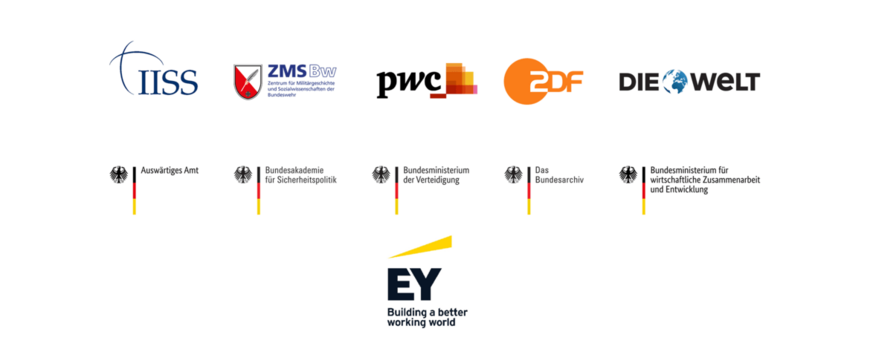
Advantages at a Glance
The interdisciplinary focus of the program enables you to acquire a wide-ranging academic profile. Potsdam, as a place to do research, offers a diversity of cultural and political institutions that constitutes a unique environment for research and teaching. There are numerous possibilities for studies and internships abroad.
The degree program is conducted in collaboration with the Center for Military History and Social Sciences of the Bundeswehr (ZMSBw) and offers dedicated internship places at the Federal Ministry of Defence (BMVg), the Federal Ministry for Economic Cooperation and Development (BMZ), the ZDF Studio Berlin, the Deutsches Historisches Museum (DHM), and the International Institute for Strategic Studies (IISS) in London. In addition, we cooperate to provide internships with the Federal Foreign Office, the Federal Archives, the Federal Academy for Security Policy (BAKS) as well as with the department of contemporary history of the daily newspaper WELT.
This program is suitable for part-time study and offers an opportunity for a stay abroad; the University will be happy to offer assistance in the planning and realization of your plans.
Application
Have you decided to study for a master’s degree in War and Conflict Studies at the University of Potsdam? Then you should take the next step and get more information about the current application and enrollment procedures at the application website.
Frequently Asked Questions
Contact
Institute of History
Christian E. Rieck | departmental advisory office
Important Links
This description is based in part on information from the subject-specific study and examination regulations for a master’s degree in War and Conflict Studies at the University of Potsdam dated February 9, 2022 (Official Announcements No. 16/22, p. 622).


